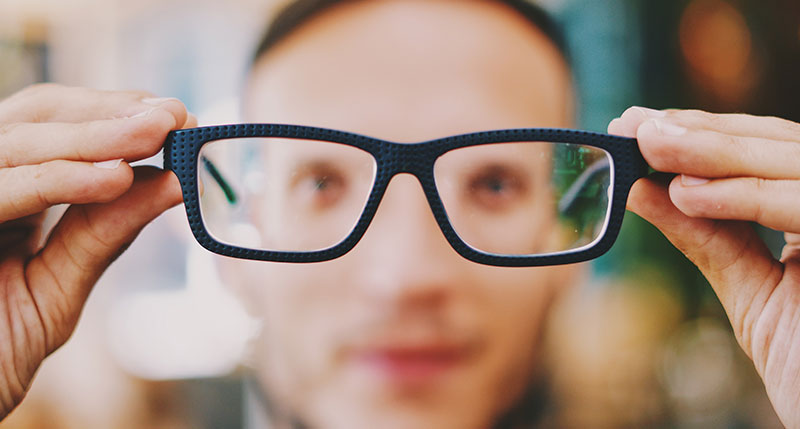Are you doing everything within your power to protect your vision and maintain good eye health?
Studies show that many Americans aren’t. But it’s not too late to turn things around and adopt good eye health practices that will benefit you now and help you see your best this year and into the future.
Here are 6 poor eye health habits to focus on correcting in 2022:
- Skipping Your Annual Comprehensive Eye Exam. It’s easy to take good vision for granted. Still, many eye conditions and diseases that can negatively impact your vision are impossible to detect without a comprehensive, dilated eye exam with your optometrist. Did you know that nearly 10% of people haven’t had an eye exam in more than five years? Yes, the pandemic played a role in that. But it’s now 2022: Time to get back on track by scheduling your wellness exams!
- Wearing Daily Contact Lenses Overnight. Your daily, disposable contact lenses are meant to be just that: Changed daily for a new pair, and never worn overnight. Yet, about two in three patients (that’s 66%) are guilty of this poor eye health habit. Leaving disposable lenses in the eye overnight can cause pain, eye fatigue, redness, dry eyes, irritation, mucus discharge, or even an eye infection. Stop the madness! Remove those daily disposable lenses each night before bedtime, then insert a fresh new pair in the morning.
- Reusing Daily Contact Lenses. One benefit of daily contact lenses is that you enjoy the feeling of fresh, new lenses each morning. The practice of discarding worn lenses significantly reduces eye infection rates. When you go against medical advice and reuse your dailies, the risk of infection skyrockets. That’s because daily lenses are thinner than long-wear lenses and don’t hold up well during the disinfection process. Reusing these lenses is simply not worth the risk of an eye infection that could result in permanent lost vision. Need more lenses? Call our offices today!
- Neglecting to Disinfect Contact Lenses. If you wear monthly lenses, don’t forget the critical step of cleaning and disinfecting them. To do so, gently rub them around in your palm and rinse with a multi-purpose cleaning solution before storing in a properly cleaned and rinsed case. Think of it like this: When you take a shower, you don’t just stand there in the water hoping you’ll get clean, do you? No—you scrub your skin with a washcloth to get clean. It’s similar with contact lenses: Gentle friction removes contaminants and microorganisms from your lenses. Never use tap water to clean or store your contact lenses. Tap water contains microorganisms and contaminants that can cause itchy, red, irritated eyes–or even a bacterial or fungal infection.
- Not Cleaning Glasses and Sunglasses Daily. Even though they don’t go into your eyes, eyeglasses need to be washed often, ideally on a daily basis. In addition to harboring bacteria that could result in staph infections, they also collect oils, makeup, and skin cells which can lead to acne and blackheads. And remember to wash your sunglasses, too! To clean glasses properly, use a drop of mild soap such as dish soap, gently rub the lenses under running water, rinse, and dry carefully with a clean, soft cloth.
- Ignoring the 20-20-20 Rule. Spending too much time staring into screens and digital devices without giving your eyes a break can lead to Digital Eye Strain. The condition is characterized by headaches, blurred vision, and tired, dry, irritated eyes. Avoid eye strain by taking a break every 20 minutes or so when you’re looking at a screen. Change your focus by looking at something about 20 feet away for 20 seconds or so. And remember to blink!
Make it your New Year’s Resolution to adopt these good eye health habits in 2022!

Recent Comments